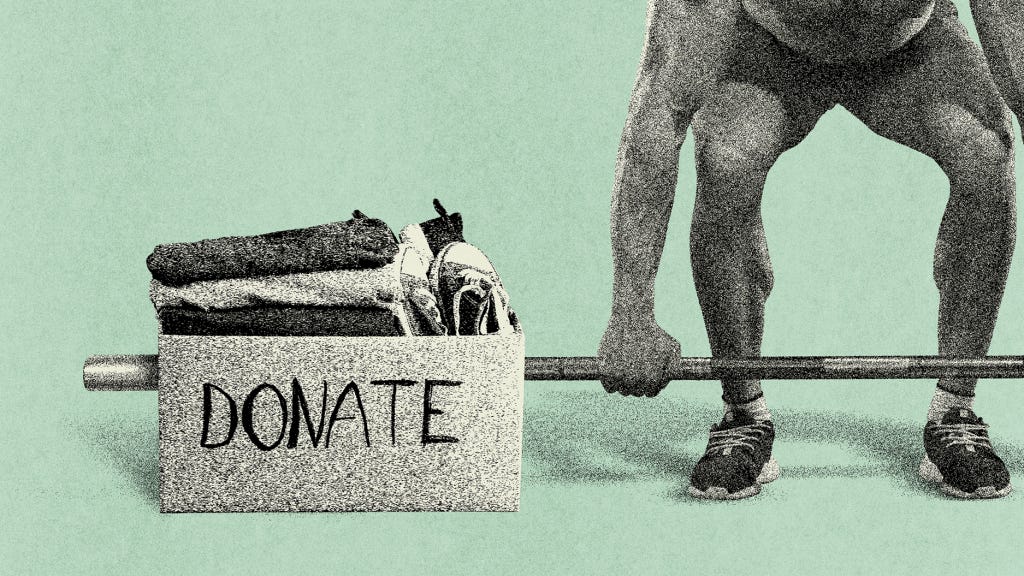The “SSS” framework: How to change the world with what you have
Rutger Bregman’s “Moral Ambition” wants us to aim our careers not at money but solving the world’s biggest problems.
I ignore a lot of charity fundraisers or canvassers. If I ever go to an event and I see a stand full of leaflets, manned by someone in a brightly colored vest and with an ingratiating grin, I avoid them with a wide berth. Phone out, head down, and “I’m far too terribly busy to talk to you about your charity today, I’m afraid.” I don’t think this is because I’m a bad person. I give a fair amount of money and time to charities that I think matter — more than most, but less than some, I’d say.
The problem is that I don’t have thousands of dollars to give to thousands of charities. I do not have the emotional bandwidth to muster the care for all of the very worthy causes in the world. Human as I am, I cannot hold child exploitation, modern-day slavery, deforestation, biodiversity loss, domestic abuse, men’s mental health, cancer research, or battery farming in mind all at the same time.
I suspect many people are like me. Most people care about the world, and they care about other people. Most people want to make the world better. But when various actors are wrenching your attention to look at this catastrophe or that problem, it’s tempting to simply shut your eyes and your door. The next guy can field the friendly canvasser with the free pens.
In this week’s Mini Philosophy interview, I spoke with activist and historian Rutger Bregman about this and much more. It’s a problem Bregman appreciates and hopes to address through his organization and new book, Moral Ambition: Stop Wasting Your Talent and Start Making a Difference.
Most people can do more
Bregman is far too polite and kind of an interviewee to do so explicitly, but a lot of what he said in our conversation — and in his book — was calling me out. I wrote above about how I have neither the resources nor the emotional bandwidth to do much more than I am doing. But is that true? How often do I seriously inconvenience myself or push my limits to help those who need help?
As Bregman put it: “Most people stand on the sidelines and live their lives as kind of herd animals, just copying other people’s behavior, doing what’s expected of them. Luckily, there are beautiful exceptions of people who are willing to go against the crowd. Moral ambition is an ideal for everyone. There are amazing examples throughout history of people who had very little privileges, but still made an enormous difference.”
The reason why the term “moral ambition” is both provocative and attractive is that it both calls you out for lacking ambition and aligns the notion of charity with ideas of a “career,” “self-improvement,” and “education.” You run to get fitter. You lift to get stronger. You read to get better educated. You work hard to get promoted. As Rutger put it:
“It’s not because you are a good person that you do good things. No, it’s exactly the other way around. You start doing good things, and then you become a good person.”
The “SSS” framework
In the days after our interview, when the sting of self-reflection had faded and the subsequent acceptance had settled in, I was still left with a question: How can I best help others? And here, too, the analogy with a career can help. In an ideal world, people will find themselves working a job that they are both good at and enjoy. I gravitated toward philosophy, writing, and the arts because I like them, but I’m also good at them. The two are not unrelated, of course. We work hardest at what we like, and hard work usually leads to progress.
People are happiest when they are working hard at what they love, when they get rewarded for it, and when it’s adding something worthwhile to the world — Ikigai, and all that. So, how can I flex my moral ambition and look to change the world the best way I can? This is what Bregman says:
“We work with a simple framework that we call the SSS framework, which is all about focusing on the most sizable, solvable, and sorely neglected problems in the world. We encourage people to think a little bit like an entrepreneur. So, any successful entrepreneur would say, ‘Don’t do what everyone else is already doing, but find your [unique selling point], find your gap in the market.’… In the world of doing good, we can use a similar approach.”
“If you want to maximize your contribution, look at the most neglected aspects of the fight. That’s just an example of how we encourage people to think: Think like an entrepreneur, go where other people don’t go.”
Helping your elderly next-door neighbor fix their fence is solvable, neglected, and admirable, but it’s not sizable. That’s the key to what Bregman is saying. Most people do “charity work” of some kind — helping out in the neighborhood, supporting a grieving friend, or stopping to check on someone who’s fallen over in the street. Everyday acts of moral compassion. But the issue is scale.
How can you use the talents you’ve nurtured and the interests you have to find that entrepreneurial gap in the moral market? There is change to be had, and effort to be made, and what Bregman is arguing is that most people can do more with what they have — but what we have might be more than we think. If moral ambition is a muscle, most of us are barely flexing it. The challenge isn’t to care about everything, but to care more strategically.
Jonny is the creator of the Mini Philosophy social network. He’s an internationally bestselling author of three books and the resident philosopher at Big Think. He's known all over the world for making philosophy accessible, relatable, and fun.
More Big Think content:
Big Think | Big Think Business | Starts with a Bang | Big Think Books






"But the issue is scale" - Those 'little things' can compound and add up :) And while helping that 1 neighbor isn't 1,000 people, you may end up causing just as much positive/permanent impact. Think of a teacher that changes 1 student's life and that student goes on to cure a disease or solve a key global crisis. I think it's still worth the effort to try to reach 1, because that's better than none.
I love this idea because it involves intrinsic motivation and inspiration coupled with a desire to affect the world for good in a way that is not ego-centric. This is the antidote to a wealth of social ills. We need it to build a healthier society.